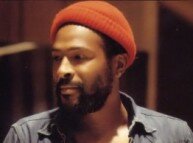Five Things Nora Ephron Taught Us About Love
We'll have what she had.

by Alisa Mackay
The late Nora Ephron's contributions to film and culture extend a lot further than a faked orgasm; her films have directly informed our shared ideas of love, sex, and dating. At her best, she avoided cutesy ladies-being-klutzy fluff and instead made movies about love and romance that were often as honest as they were funny. Here are five insights we owe her for.
1. Shit happens. (Heartburn, 1986)
An adaptation of Ephron's semi-autobiographical novel, Heartburn isn't nearly as lighthearted as much of her later fare. The story of a woman (Meryl Streep) married to a philandering D.C. columnist (Jack Nicholson, playing a role based on Ephron's ex-husband, Carl Bernstein), the film follows their relationship through a host of tribulations before they get separated. Heartburn's a comedy, but while it's full of zingers, it's not exactly fun. It is, however, a well-drawn, realistic portrayal of the fact that, regardless of how in love you are or how much you want to make a relationship work, sometimes it's best to pull a page from Dan Savage's playbook and DTMFA. People who think Ephron did little other than establish a blueprint for Katherine Heigl rom-coms need to watch this film.
2. Men and women can be friends, but first they need to be equals. (When Harry Met Sally…, 1989)
When Harry Met Sally... is essentially a "will-they-or-won't-they" tale of two people (Billy Crystal and Meg Ryan) with differing views on whether men and women can have platonic relationships. When it's not remembered for the fake-orgasm scene, it's for its well-worn catchphrase: "Men and women can't be friends, because the sex part always gets in the way."
But Ephron never saw the film as providing a complete answer. Rather, as she wrote in the introduction to the screenplay:
The truth is that men don't want to be friends with women. Men know they don't understand women, and they don't much care... Women, on the other hand, are dying to be friends with men. Women know they don't understand men, and it bothers them: they think that if only they could be friends with them, they would understand them and, what's more (and this is their gravest mistake), it would help.
It might sound defeatist, but it's more of a cry for equality — an argument that men should be more curious and women should be less compliant. She saw good relationships as give-and-take partnerships with both partners on even ground, and she wanted more women to stand up for themselves.
3. Don't be afraid to believe in cliches every now and again. (Sleepless in Seattle, 1993)
Sleepless in Seattle concerns itself with lovers who've never met; a series of near-misses keeps them apart, but everything works out by the end. It's unabashedly romantic without being cloying — a difficult trick to pull off, making this a great example of filmmaking first and foremost. In his New York Times review, Vincent Canby wrote "Sleepless in Seattle is so cannily concocted that it somehow manages to stand above the sitcom world in which it is set," and he's right. But isn't that one legitimate function of art — to make us re-believe in all the old virtues and verities?
4. Remain open to possibilities. (You've Got Mail, 1998)
Remember when nobody quite knew how to use the internet? Me neither! (Luckily, the official You've Got Mail website is still up... and it's amazing.) Here, the old rom-com trope of "They hate each other! Now they love each other!" that's enticed audiences since Pride and Prejudice plays out over this new-fangled invention called electronic mail. Tom Hanks is the heir to a chain of mega-bookstores, the ubiquity of which threatens Meg Ryan's small, independent bookstore. They butt heads over business, while simultaneously nursing a secret courtship using silly screennames to conceal their identities. They are, of course, perfect for each other, and eventually... anyway, it's a little corny. But it's also a nice reminder that sometimes the person you should be with may be the person who challenges you most.
5. You don't always need someone else to teach you how to love yourself. (Julie & Julia, 2009)
Ephron's final effort presents the parallel narratives of Julia Child learning to cook in '60s Paris, and modern day Julie Powell blogging about cooking the 524 recipes in Child's Mastering the Art of French Cooking. Unlike the standard looking-for-love romantic comedy, it deals with what happens after the happy ending, when we're left with ourselves, flawed and in progress. Though the characters' relationships are important, they're largely peripheral to the narrative. (Although Stanley Tucci and Meryl Streep are just about the most adorable thing ever.) In that way, Julie & Julia isn't so much about the importance of a romantic relationship as it is about the relationship that two very different women have with themselves — something rarely depicted in film.
It's not a perfect film — the Julie segments are disappointingly sitcommy, especially when you know that Ephron was capable of much more truthfulness. But her best qualities come through in the steeliness of the message: finding a partner won't make you love yourself. Regardless of your relationship status, you're always going to be in charge of your own happiness. That's a very adult take on love, and in a time when Hollywood seems intent on selling us a lifelong adolescence, it's a fine example of why we needed Ephron's voice. She was a badass and a trailblazer, and she will be missed.
Want to meet someone who'll adapt your relationship into a groundbreaking romantic comedy? Meet them on Hooksexup.














Commentarium
comments powered by Disqus